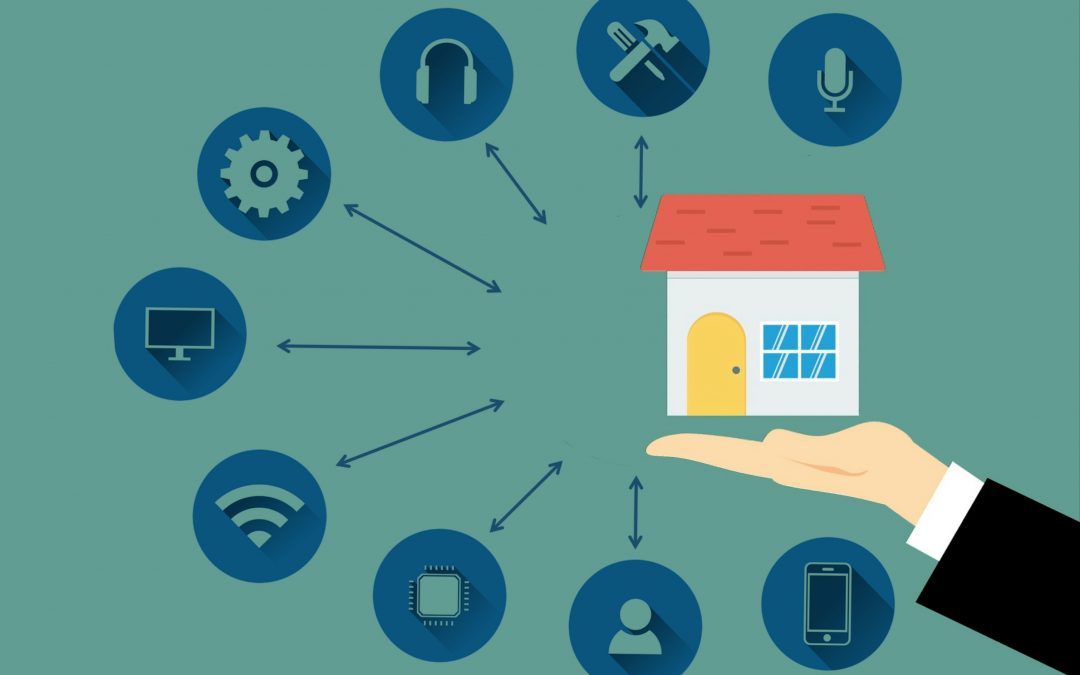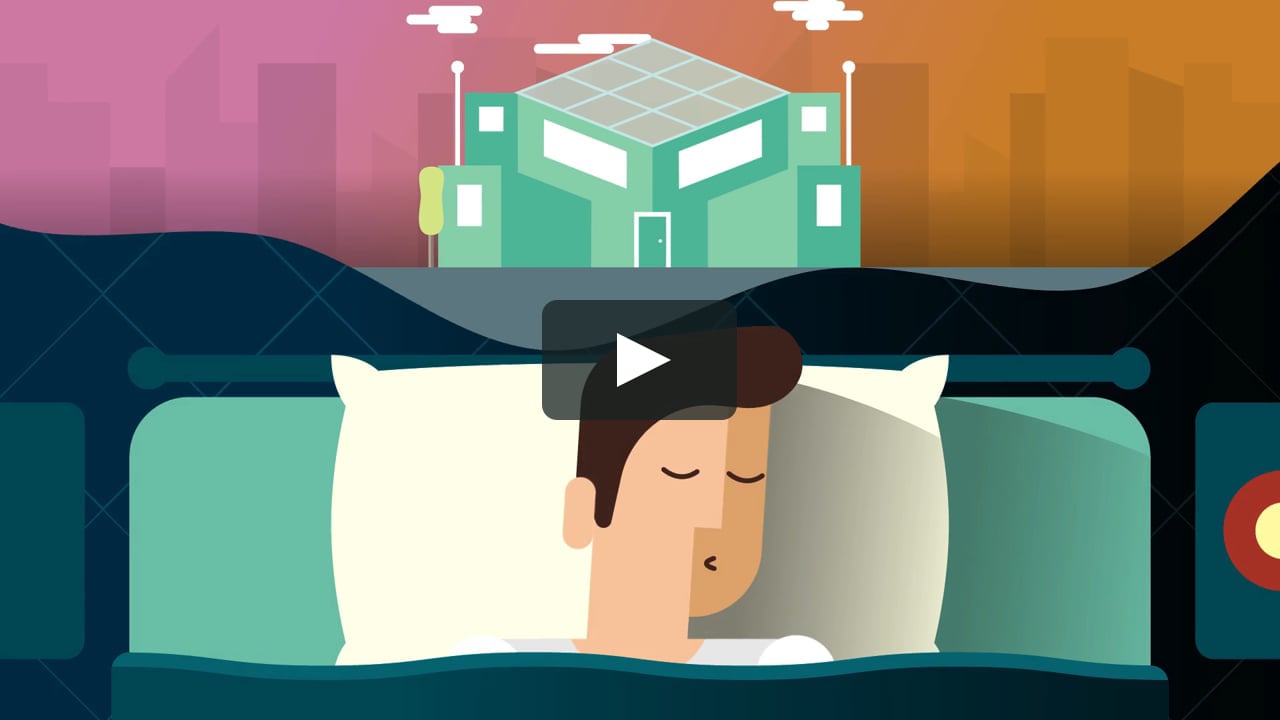There are great advantages in investing in home automation for your home. From increased security and peace of mind, to energy conservation and convenience, smart homes are likely to affect the future of real estate. In addition, the installation of smart technology will add additional value when you want to sell your home.
Many of us will sell our house at some point, and Home Automation can increase its value considerably. It is good to know that the technology we use to improve our daily lives can also be an investment that will pay off for years to come. For a long period of time, home automation in Spain was considered a luxury due to the prices that were handled in the sector. It was something new and technological, two perfect ingredients for the joy and enjoyment of those who wanted to inflate prices as they pleased during the bubble in our country.
It is estimated that in 2020 there will be 50 million devices that work connected to the Internet and that, for that same year, the implementation of home automation will be 50% in the US and 31% in Europe. In Spain, these percentages will be lower, precisely because of the problem -almost endemic- of identifying home automation with luxury. Right now, a minority of homes is technically classified as smart homes. That means any home that currently has smart technology offers unprecedented comfort and convenience to interested buyers.
As smart technology continues to be comprehensive for homes across the country, it becomes increasingly important for sellers to keep their homes up-to-date and increase their market value with the latest smart home technology.
How to easily add value to your home
The best thing about smart home technology is that most of it can be installed without the need to hire a professional, which means it adds value quickly and produces a higher return on your investment. Another advantage is that many devices can be applied for multiple purposes.
Cameras and sensors can identify potential security breaches and send alerts to your phone when you’re away, or if they’re at home they can detect your activity to adjust the temperature appropriately or turn lights on and off. Safety and energy savings are two of the main benefits that a smart home provides its occupants. If you decide to sell, these benefits will be obvious to potential buyers and are things that all homeowners want. Another attraction for buyers is that safe and efficient homes attract lower insurance premiums.
Increase the security of your Home thanks to Home Automation
There are a few standalone smart devices that the user customizes and are unlikely to be left behind when the property is sold, such as Amazon Echo speakers. But smart technology that can remain part of a home when sold will drive more interest in the property and justify the value to home buyers. A perfect example is an intelligent security system. Security systems have always been a source of value for homes in the market.
Technology has improved home security systems to add capabilities far beyond sounding an alarm. Smart home security offers solutions that are affordable and can be easily installed to offer a range of benefits by incorporating motion sensors, integrated cameras, two-way voice communication, and water leak sensors. Notifications are sent directly to a smartphone when the system detects activity or possible problems. Communicating all of these benefits to buyers could set sellers apart from others in the area.
An important point to sell your home is energy savings!
Energy saving technology is another great selling point in the real estate market. Spain is very far from complying with the European regulations that require all new buildings, and also refurbished ones, to have almost zero energy consumption before December 31, 2020. For public buildings, it has been compulsory since the beginning of 2019.
Smart home technology can optimize energy use by monitoring the home environment and autonomously making changes that save heat, air conditioning, and electricity. Door and window sensors are a good example of smart home devices that are inexpensive, easy to install, and have multiple purposes. Homeowners can sign up to receive app notifications on their smartphone about doors or windows that are open or ajar.
This is useful for security purposes and also to prevent energy waste. Advanced automation platforms allow homeowners to tailor their entire home to their needs. Selected lights can be configured to turn off at sunrise, and smart thermostats can evaluate a range of specific conditions to adjust the temperature. Pre-programmed triggers cause an intelligent system to take autonomous measurements. An example could be that the ground floor lights are on when the security system is armed and motion is detected. Exterior lights can be turned on or off depending on specific conditions, such as how long a door has been open and how dark it is outside. Beyond the added convenience and security that draws buyers into smart homes, detailed lifestyle-based customization lets prospective buyers feel like they’re buying a home rather than just a home.
Reducing costs in your home insurance helps you sell it better
People who buy a new home are always looking for ways to cut costs. The fact that they have lower insurance premiums on their new smart home will only increase the appeal. Insurers love to cover anything that has a low risk of payments. A highly advanced smart system that monitors every part of the home is very attractive to insurers.
Creating a safe house is about two things: protecting the house from intruders and preventing damage from disasters like floods and fires. In a smart home, security deals with a system that includes interconnected elements such as motion sensors, glassbreak sensors, sirens, and HD broadcast cameras. If any part of the system detects something unusual, alerts are sent to the owner’s smartphone. Alerts can also be sent about possible disasters. Smart smoke alarm monitors let you know if your smoke alarm is sounding, and water leak sensors alert you the moment a potentially dangerous water presence is detected.
Smart houses can even provide enough data to insurance companies to allow them to assess potential risks. If homeowners choose to share that data, their insurers can inform them of any changes that need to be made to prevent disasters well in advance. All of this means very little risk of coming home to a catastrophe, a happier insurance company that will offer lower premiums and higher value for buyers whose new smart home will give them peace of mind and savings.
Bet on home automation and you will earn yourself a privileged place for the next generation of buyers
Concerns about buying a home with smart home technology can be addressed by communicating the customizable features of smart home security systems. Any system can simply be fully rebooted to require new credentials and configured with new automation settings for the new owner to create their unique smart home profile. The next generation of home buyers is beginning to perceive smart home technology in the same way that we perceive our portable devices.
It is an important part of everyday life. In fact, as today’s consumers become more educated about the merits of technology, they become more comfortable with the prospect of inviting technology into their homes. Technology has evolved beyond passion to need, and the next generation of home buyers will not only want, but expect the security and convenience that smart home technology





